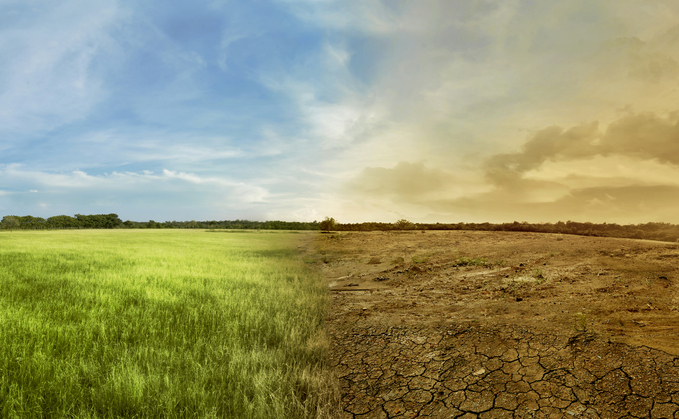
Industry Voice: Mondi explains why businesses should take into an account both nature and climate when drawing up their sustainability strategies
Nature-based solutions can play an essential role in tackling climate change, but at the same time, the climate crisis is having a severe impact on the natural world.
"In fact, the climate crisis and the nature crisis are one and the same", said Sandeep Sengupta, global co-ordinator for climate change at the International Union for Conservation of Nature (IUCN), when he spoke at a CDP event - 'Disclosing Nature's Potential: Corporate Responses and the Need for Greater Ambition' - at COP26.
"About 30 per cent of the total emissions reductions required to meet the 1.5C target come from nature," he added. "Nature sequestrates about 10Gt of CO2 a year. Mangroves alone provide $65bn of flood protection benefits a year."
More than half of the world's GDP is reliant on nature, added Paul Simpson, CEO of CDP, the global disclosure initiative. "There is no pathway to limiting temperature rises to 1.5C that doesn't rely on nature-based solutions. Companies rely on nature throughout their value chains, and they can both harm and bring benefits to nature," he said.
"While CDP data shows that disclosing companies see greater risks from climate than nature and report fewer nature-based opportunities too, leading companies are implementing ecosystems-based initiatives on water stewardship, regenerative agriculture and ecosystem restoration," said Helen Finlay, senior global policy manager at CDP.
One company doing this is Mondi, a global leader in packaging and paper and this year one of only 14 companies on CDP's prestigious ‘Triple A List' for tackling climate change, protecting forests and water security.
The company works across the value chain, from growing trees to manufacturing pulp and producing packaging and paper. Gladys Naylor, group head of sustainable development explained, "About 80per cent of our revenue comes from fibre-based products and we rely on raw materials and inputs such as wood, recycled paper, water and energy. Because we are so reliant on nature, it has been intuitive for us to think about nature-based solutions and bring them into our decision-making and we have been doing this for many years."
The company's new sustainability framework, Mondi Action Plan 2030 (MAP2030) articulates Mondi's impact on climate change and greenhouse gases; the impact climate change is likely to have on the business; and the important role that forest landscapes will play in tackling the issue.
Naylor added: "Biodiversity and water stewardship are explicit components of our commitment to taking action on climate. We make the interlinkages we see between nature and climate clear to ensure we are thinking about them in a connected way."
The company's 2.5 million hectares of forestry holdings - an area around half the size of Switzerland - range from boreal forests in northwest Russia to plantation forests in South Africa. "Collaboration across sectors and across land use sectors is critical to secure natural resources and their benefits to people and production sectors at scale," said Naylor. One of the important lessons we learnt quite early on was that we need to go beyond our fence line and look at issues at a landscape level. To bring nature-based solutions into the fight against climate change, corporates are not best-placed to facilitate these collaborative initiatives. You need to have the active involvement of scientists, NGOs, communities and regulators in broad multiple sector-based approaches."
One example of how this can work can be seen in the company's South African operations, Naylor pointed out. "We operate plantations in areas that would naturally be grasslands. South Africa is a water-stressed country and our plantation stands can have a significant effect on the availability of water when not well designed and managed.
"When plantations were first established in South Africa, there was conflict between the forest sector and the environmental community because of the impact the tree plantations were having on water resources," he continued. "We had the choice of continuing to be in conflict or working together to find better outcomes for all. So, the business case is very clear - it's about maintaining your social licence to operate and being able to achieve a win-win outcome for communities, ecosystems and businesses at the landscape scale."
Mondi has about 15,000 hectares of wetlands on its landholdings, and they play a critical role in the landscapes, such as cleaning and regulating water flows, particularly as extreme weather events become more common.
"Working with environmental NGOs and scientists, we regenerated and rehabilitated wetlands by removing our tree crops from the wetlands, and also created buffer zones around these wetlands and other riparian areas.
"Over the years, we have expanded our water stewardship work to focus on entire water catchments through collaboration with other key stakeholders. Managing these natural resources is critical to our commercial operations, to the local communities around us and to land use and production sectors upstream and downstream from us. Everyone benefits from working collaboratively. "
"We need to focus on the critical topics that will allow us to achieve resilience across all different land use sectors and ecosystems to realise the value in nature," Naylor concluded.
This article is sponsored by Mondi.








